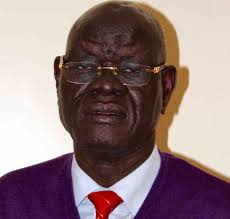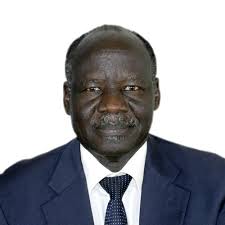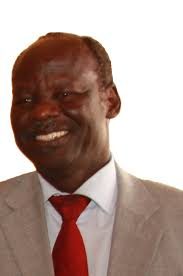South Sudan Opposition Alliance (SSOA)
Where the SPLM/A (IO) faltered.

On 1st March 2018, the eight-member South Sudan Opposition Alliance (SSOA) released a press statement on the launch of the opposition alliance. It was unbelievable that the SPLM/A (IO) was not among the signatories. I made an enquiry on the PB forum and the Chairman responded thus, “There are differences in the draft charter. They have a vision and we have another. They decided to go ahead. We agreed. Still we will continue cooperating meanwhile discussing those differences.” I did not agree with the Chairman response. A colleague in the PB posted the SPLM/A (IO) response to the draft alliance charter. I was shocked that it was a dialogue between the Chairman and the deputy Chairman as can be gleaned from the quote below.
… [After] sharing the Charter with the Leadership of my Organization (IO), I would like to give a summary of the changes (minor and major). You may questions why major change after we agreed. Well, as I did explain on that Friday, I did not have the direct authority to make the ultimate decision so I had to share the content of the draft Charter. The fact that an attempt is made to enrich the draft, it shows the seriousness IO has placed on SSOA. Please look at the changes as genuine concerns instead of taking the idea that IO does not want SSOA playing some delaying tactics.”
I thought it was out of order for the deputy chairman to tell the leaders of the other opposition groups that he did not direct authority to make ultimate decision and so had to share the content of the draft, although that really goes without saying. It makes him more of a puppet rather than SPLM/A (IO) deputy Chairman; worst when it becomes public knowledge by his own admission. I am hearing that Dr. Lam Akol circulated this response. This episode creates serious leadership crisis in the SPLM/A (IO) suggesting that the focal point is not up to the task and that explains the admission by the deputy Chairman of not having direct authority to make ultimate decision. The ultimate decision lies with the SPLM/A (IO) Political Bureau, which he and the Chairman short-circuited in what appears like an operation of Limited Liability Company dealings.
There are two or three things involved here.
First, the question of building alliance with other opposition groups. On 11 January, I circulated a paper where I discussed the necessity of forging a working relationship with the groups opposed to the ethnocentric totalitarian regime. Nobody in the Political Bureau had the courtesy of either agreeing or disagreeing with it. Not even any in the so-called focal point discussed although they knew that they would come face to face with some of the issues I raised.
Secondly, the issue of internal democracy in the SPLM/A (IO). It is obvious the Chairman, the deputy Chairman and Dr. Riek’s appointed Secretary-General (because he unconstitutionally appointed Tingo Peter – the Chairman could have only tasked him in an acting capacity) have no knowledge and/or experience with democratic practice. This explains why they quickly reached a deadlock, which the Chairman categorizes as ‘difference’. Differences in an alliance are to be expected but cannot be cause for isolation, unless we admit that we have run out of ideas and what remained in our heads is only power. I believe once the focal point presented the draft charter, the Chairman should have triggered a discussion on the Political Bureau forum for those not in the focal point to ventilate and make suggestions. This did not happen and became a two persons dialogue, in which they acted subjectively occasioning the break.
Thirdly, the issue of SPLM/A (IO) operating in isolation of other political groups where outside or inside the country. I could understand the position of the SPLM Political Leaders (FPDs) but their refusal to join the alliance will definitely compound their dilemma of being in and out of government at the same time, which the falsehood of SPLM reunification and attending various forums on that issue drive. I am convinced that the SPLM/A (IO) action of boycotting the signing of the SSOA charter on grounds not known by many members of the PB will have resounding negative effect on our standing as people who want to transform the current situation in the country. We faltered in this and I do not how we would mitigate this damage.
In the paper I circulated on 11 January, I said clearly that the opposition group leaders were members of the SPLM/A at one time or the other. We were all in the national liberation struggle therefore we know each other, which should have been a rallying point to negotiate an alliance. We in the SPLM/A (IO) seemed to have not learned a lesson. The eruption of violence in July 2016 and the return to war created a dynamically new and different political situation in the country, which required a strategic analysis and a different political thinking. We assumed that people would just join us in a leadership structure ante. That is why some comrades castigated me when I accepted and committed the SPLM/A (IO) to the Consultative Meeting called by Dr. Lam in August 2016. I believed and still believe it was the correct line of action. The outcome of that meeting are available for perusal. Whatever happened after that was not my responsibility. The PB deliberated on it in Khartoum but nothing-substantial came out. We were then the only known armed opposition.
However, as I said that a new and very different political situation arose and consequent to the oppressive policies of the regime other opposition groups armed or not, sprouted onto the political stage. This was their inalienable right to be independent and opposed the oppressive regime. However, as the dominant armed group we should have offered cooperation and agree on how this cooperation would play out in terms of general principles, strategies, tactics and geographic domain of this cooperation. I thought that was the essence of the Consultative Meeting in Nairobi in August 2016. A politician conversant with multiparty political engineering would quickly capture this evolving political environment and turn it to the advantage of his party and/or movement. Nevertheless, to hope that others opposed to the regime would come running to join us would be the height of naivety or a demonstration of jejune character not appropriate in complex socio-political situations as obtaining in South Sudan.
The SPLM/A (IO) has failed to capture the political situation on account of absence of clear political objectives. Whether it was regime change or reform dominated the debate in the SPLM/A (IO) since its inception in 2014; however the reform agenda driven by Taban’s personal ambition to capture the petroleum portfolio in the TGoNU won the day. This came to be because of the triangular socio-political relationship [Dr. Riek Machar – comrade Angelina Teny – Gen. Taban Deng (SPLM/A (IO) Chief Negotiator)] had always played the harbinger of SPLM/A (IO) lack of clarity, which Dr. Riek exacerbated through naivety, indecision and/or cowardice to break the triangular socio-political relationship until the disaster stroke in July 2016. Do we in the SPLM/A (IO) believe others do not see this political/leadership weakness? Why would they follow a person who does not listen or treats his colleagues like pawns?
The SPLM/A (IO) lack of clear political objectives stems from Dr. Riek’s complete ignorance and lack of clear ideological underpinnings of South Sudan socio-economic and political context. His ambition for power is completely detached from any ideology linked to the socio-economic and cultural underdevelopment of South Sudan and its people. He believes he has ideas, which he can only implement when in power. That explains for eight years as first vice Chairman of the SPLM and vice President of GOSS (2005 -2011) and deputy vice president of the republic of South Sudan (2011 – 2013) he remained dormant under Salva Kiir neither departing to give room to those who would honestly and loyally work under Salva Kiir to make the country move forward. Nor did his show dissatisfaction with the ongoing in South Sudan for eight years but was deeply involved as minister of housing overseeing the rehabilitation of dilapidated Southern Regional Government infrastructure instead of building new one with the huge budget he managed.
It is not enough to have ambition for power; one must have the ideological and strategic political clout to managed that ambition. The SPLM/A (IO) started in 2013/2014 with nearly sixty thousand armed combatants [SPLA, Police, Prison warder, Wildlife wardens and Civil Defence officers]. In 2015, the Agwalek Forces under Gen. Johnson Olony joined the SPLM/A (IO), captured Malakal, Akoka, and Melut. They were poised on attacking in order to capture the oil fields in Adar and Paloich, when the Dr. Riek and Taban conspired to sabotage the operation by ordering the withdrawal of other forces from Lou and Jikany eventually leading to the government recapture of Malakal and Melut with the loss of life and the gunboat. Now, how would Dr. Riek dream of capturing power from Salva Kiir when he lacked the strategic planning of denying Salva Kiir the financial and economic resources for prosecuting the war? How would Dr. Riek win military victory without organizing and sourcing a combat capable army but preferring to rely on the Nuer white army who do not subscribe to the laws of war or to the political objective of war?
What next after refusing to sign the charter on account of ‘difference’ with the other political groups? This is my take on our dilemma, which is different from FPDs dilemma in that we are still the largest political military movement in the opposition but with diminished political and military clout. Let me warn us here; what we have now is only potential political and military power, which also is diminishing at an exponential rate due to the obvious mistakes we make. It is not true that the US administration sanctioned us because of the decision in the PB to pursue armed struggle. The US administration sanctioned us because we acted nuerly (announcing publicly our intention to war. The very idea of publicly circulating classified SPLM/A (IO) documents is not only naïve but also a security risk). Not political party operates with its doors and windows opened to the public and expects to win genuine and actual political victories; perhaps may be only imaginary victories triggered by wishful thinking. We could transform this potential power by acting strategically within the opposition looking not the power sharing in the transition period but the long-term socio-economic and political engineering of South Sudan. This should be the starting point with the opposition groups when the HLRF resumes. It is not the short-term gains the parties will collect from the revitalized agreement but rather the long-term impact of the agreement on South Sudan context, which should drive the relations among the opposition groups. This requires looking at the issues or what the Chairman categorized as ‘differences’ from an objective and patriotic prospective. The condescending and paternalistic attitude we display towards other compatriots has no basis and should cease henceforth. We must accept that the Chairman and the deputy Chairman have faltered in deciding to let go the alliance on account of minor and non-fundamental ‘differences’ with the other opposition groups. It puts the SPLM/A (IO) at par with SPLM (IG) focused only on power and not the concern for the suffering people of South Sudan.
Kind regards
Peter Adwok Nyaba
2nd March 2018
Editor’s Note: The views expressed in the “Opinion Page” are solely the opinions of the writers. The veracity of any claims made are the responsibility of the author’s and are not necessarily endorsed by The Malakal Post. The Malakal Post, reserves the right to edit articles before publication. If you would like to submit an opinion article or analysis, please email your article at: info@malakalpost.com















